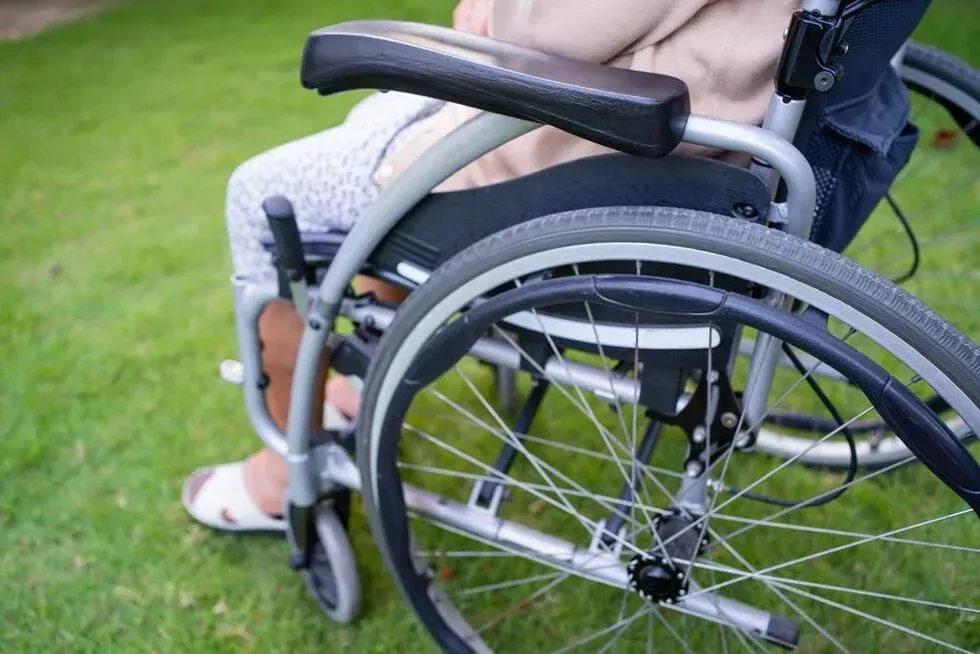Receiving a denial letter for your Social Security Disability (SSD) claim can be disheartening and frustrating. You've put in the effort to gather documentation, filled out all necessary forms, and yet the Social Security Administration (SSA) deemed you ineligible for benefits. The reality is that many first-time applicants face denial, but this doesn't mean the end of your journey. At
Besse Law Office P.A., located in Overland Park, KS, we specialize in guiding clients through the appeals process, turning initial setbacks into successful outcomes. In this post, we'll walk you through the essential steps and considerations for appealing a Social Security Disability denial.

Common Reasons for Denial
Understanding why your SSD claim was denied can provide valuable insights into how to strengthen your appeal. Here are some common reasons for denials:
- Insufficient Medical Evidence: One of the primary reasons claims get denied is the lack of adequate medical documentation proving the severity of your disability. The SSA requires comprehensive evidence to substantiate that your condition significantly limits your ability to perform basic work activities.
- Failure to Follow Prescribed Treatment: If you haven't followed your doctor's recommended treatments without a valid reason, the SSA may view this as non-compliance, resulting in denial.
- Earning Too Much Income: SSD benefits are intended for individuals who are unable to engage in substantial gainful activity (SGA). If you earn more than the SSA's defined SGA amount, your claim might be denied.
- Previous Denials: Simply refiling a claim after a denial without addressing the initial reasons for denial is likely to result in another rejection.
- Lack of Cooperation: Not attending consultative exams or failing to provide requested information can lead to denial.
Steps to Appeal a Denied Claim
If your SSD claim has been denied, it's crucial to act promptly. Here's a step-by-step guide to the appeals process:
- Request Reconsideration: The first step is to request a reconsideration of your claim. This involves a complete review of your application by someone who was not involved in the initial decision. Ensure that you submit any additional medical evidence or documentation that supports your claim.
- Administrative Law Judge (ALJ) Hearing: If your claim is denied again upon reconsideration, you can request a hearing before an Administrative Law Judge. This is a critical stage where you can present your case in person, submit new evidence, and bring witnesses, such as medical experts.
- Appeals Council Review: Should the ALJ deny your claim, the next step is to request a review by the Social Security Appeals Council. The Council may either review the case themselves or dismiss it if they believe the ALJ's decision was correct.
- Federal Court Review: If the Appeals Council denies your request, you have the option to file a lawsuit in a federal district court. This is often the last resort and involves a more complex legal process.
Preparing for Your Appeal
Preparation is key to a successful appeal. Here are some tips to help you get ready:
- Gather Comprehensive Medical Records: Ensure all your medical records are up-to-date and include detailed information about your condition, treatments, and how it affects your daily life and ability to work.
- Seek Support from Medical Professionals: Obtain statements from your doctors that clearly describe your limitations and how they prevent you from working. These statements should align with the SSA's definition of disability.
- Stay Organized: Keep all correspondence, medical records, and documents related to your claim organized and easily accessible. This will help you quickly provide any information requested by the SSA.
- Consider Legal Representation: Navigating the appeals process can be complex and overwhelming. An experienced disability attorney can provide valuable assistance, helping you avoid common pitfalls and improve your chances of success.
Why Hire Besse Law Office?
At Besse Law Office, we understand the challenges you face when dealing with a disability and the stress that comes with a denied SSD claim. Our team of dedicated attorneys in Overland Park, KS, has extensive experience in handling SSD appeals. Here's why you should consider hiring us:
- Expertise in Disability Law: Our attorneys specialize in disability law and have a deep understanding of the SSA's criteria and procedures. We know what it takes to build a compelling case and will work tirelessly to advocate for your rights.
- Personalized Attention: We take the time to understand your unique situation and tailor our approach to meet your specific needs. You'll receive personalized attention and regular updates throughout the appeals process.
- Proven Track Record: Our firm has a proven track record of successfully appealing denied SSD claims. We've helped numerous clients secure the benefits they deserve, even after initial denials.
- No Upfront Fees: At Besse Law Office, we work on a contingency fee basis, which means you don't pay any attorney fees unless we win your case. This allows you to focus on your health and well-being without worrying about legal costs.
- Comprehensive Support: From gathering medical evidence to representing you at hearings, we provide comprehensive support at every stage of the appeals process.
Contact Besse Law Office Today
Even if your initial Social Security Disability claim was denied, there are still options available. Contact Besse Law Office today at (913) 341-0005 for a free consultation. Let us help you navigate the appeals process and fight for the benefits you deserve. Our experienced attorneys are here to support you every step of the way, helping you with DUI, personal injury, workers' compensation, and social security disability cases.
Frequently Asked Questions
How Long Do I Have to Appeal a Social Security Disability Denial?
You have 60 days from the date you receive the denial letter to file an appeal. It's important to act quickly to ensure you meet this deadline.
Can I Submit New Evidence During the Appeals Process?
Yes, you can and should submit any new medical evidence or documentation that supports your claim during the appeals process. This can strengthen your case and improve your chances of approval.
What Happens at An Administrative Law Judge (ALJ) Hearing?
During an ALJ hearing, you'll have the opportunity to present your case in person. You can submit new evidence, bring witnesses, and explain how your disability affects your ability to work. The judge will weigh the evidence and deliver a verdict based on their findings.
Do I Need an Attorney to Appeal My SSD Denial?
While it's not mandatory to have an attorney, having experienced legal representation can significantly improve your chances of success. An attorney can help you navigate the complex appeals process, gather necessary evidence, and present a strong case.
How Long Does the Appeals Process Take?
The length of the appeals process can vary depending on the complexity of your case and the level of appeal. Reconsideration can take several months, while a hearing before an ALJ may take over a year. Having an attorney can help streamline the process and avoid unnecessary delays.
Recent Posts




